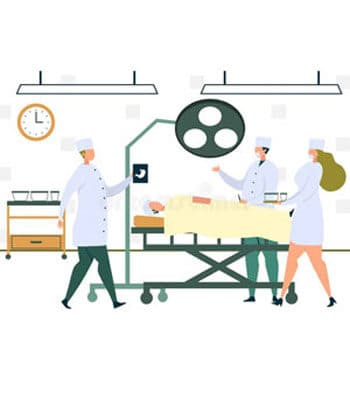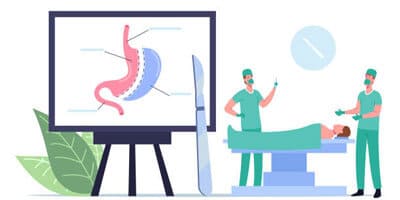Diagnostics Laparoscopy, also known as exploratory laparoscopy, is a procedure used to get a closer look at the reproductive organs. It helps in diagnosing various gynaecological conditions through a biopsy (collecting a sample of a tissue to check for a disorder). It is a safe procedure with minimal risks.
Laparoscopy involves use of an instrument (known as a laparoscope) with a high resolution & high intensity camera. The instrument is injected into the abdominal wall through an incision. The camera feeds photos to a television monitor as it goes along, allowing your doctor to gather biopsy samples throughout the surgery. This surgical process allows your gynaecologist to check the insides of your reproductive organs without any open surgery, making it a low risk option.
Diagnostic laparoscopy allows your gynaecologist to see your reproductive organs, identify any abnormalities, collect sample tissues, collect washings or cell samples & perform other procedures. In some cases, diagnostic laparoscopy can turn into treatment.

It is often recommended when the patient has:

The patient will require a few lab tests prior to the procedure. The patient will also be asked to:

The patient is given general anesthesia & a small cut is made in the navel to insert the laparoscope. Once inserted, the laparoscope starts transmitting high resolution images of the reproductive organs onto the screen, giving your doctor a clear view of your organs to find abnormalities if any.
After the laparoscopy, the patient will be advised to rest & avoid driving for a day. It is also advisable to avoid alcohol for at least 24 hours after the procedure. Also, the patients are advised to avoid any kind of strenuous activity for at least a week post laparoscopy.
Dr. Sarada Mamilla is the best gynaecologist & Laparoscopic Surgeon in Hyderabad. She has 20+ years experience in successfully performing laparoscopic procedures including diagnostic laparoscopy to diagnose conditions like fibroids, endometriosis & others.
Are you an international patient looking for the best gynecological care in India? Consult Dr. Sarada Mamilla, the best gynecologist & Laparoscopic Surgeon in India, offering top notch care for complex cases of uterine fibroids, endometriosis, adenomyosis & gynecological malignancies.
Copyright © 2023 All rights reserved By Dr.Sarada